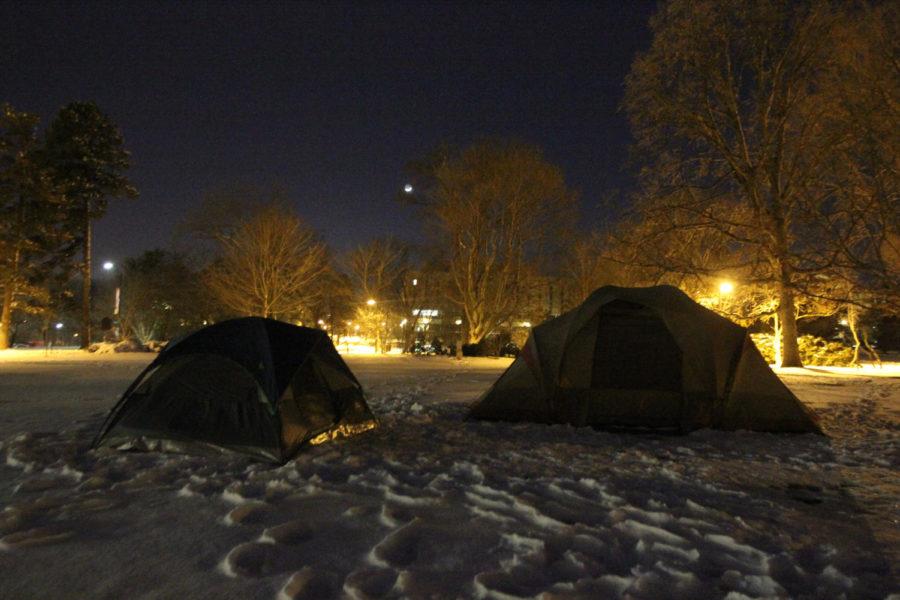Editorial: Help support services for homeless youth
Photo: Suhaib Tawil/Iowa State Daily
Campers camp to help shed light on the issue of homelessness with veterans that come home on Wednesday, March 13, 2013, across from the Campanile.
March 22, 2017
For many of us, homelessness is not something we have dealt with or will ever have to deal with. Yet, it is still an issue that faces our nation, our state and our community — and specifically affects American children.
Youth between the ages of 12 and 17 are more at risk for homelessness than adults, according to the National Conference of State Legislatures. About 50,000 youth in the United States sleep on the street for six months or more, according to the National Alliance to End Homelessness (NAEH). Many of these children are running away from abuse, their identities as LGBTQ+ not being accepted by their parents and other problems associated with poor home life.
Whether or not you plan to attend Reggie’s Sleepout — an event where people will sleep at Jack Trice stadium to raise money to help homeless youth — understanding the prevalence of youth homelessness and doing what you can to help with the issue is important.
By way of the “American Dream,” every child deserves a chance to pursue their dreams and obtain success in their life. Furthermore, they deserve to be nurtured and educated — and they certainly should not have to face abuse or hate from their families that are supposed to raise them into healthy, happy American citizens.
Homeless youth are more likely to participate in high-risk activities such as drugs or unprotected sex, more likely to suffer from mental and physical health problems, more likely to exchange sex for resources and are less likely to succeed in school. If this isn’t enough to make you care about this problem, then you should care because a strong youth population leads to stronger communities that can benefit all of us.
The NAEH suggests that communities can combat youth homelessness by:
-
Improving the crisis response.
-
Prioritizing family reunification or support as the initial intervention.
-
Expanding the reach and effectiveness of transitional living programs.
-
Improving data collection and performance measurement.
-
Collaborating with mainstream systems such as child welfare and juvenile justice.
Reggie’s Sleepout helps to fund organizations that provide such services.
“The funds raised from Reggie’s Sleepout are used for programs to help homeless youth transition to lives as successful and productive members of the community,” according to its website.
In the past, the event has helped raise more than $1 million to fund Youth and Shelter Services, Assault Care Center Extending Shelter and Support and Emergency Residence Project. The event will take place from 3 p.m. Saturday to 7 a.m. Sunday at Jack Trice Stadium.







